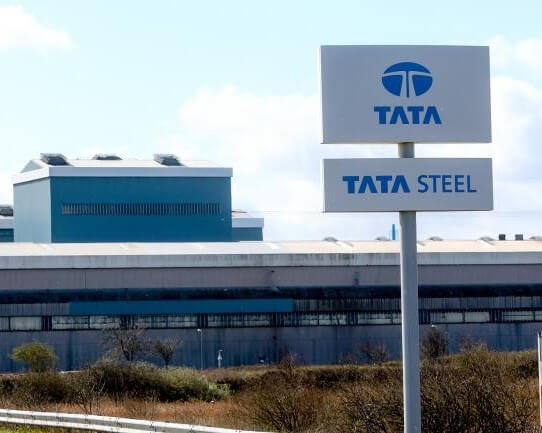
Carmakers will eliminate more than 80,000 jobs during the coming years, data compiled by Bloomberg News says. Daimler AG and Audi announced nearly 20,000 job cuts in just the past week. Reportedly, automakers are facing challenges due to trade tensions and tariffs, forcing them to reassess their workforce in the era of electrification, autonomous driving, and ride-on-demand services.

A U.S banking regulator rebuked Wells Fargo’s HR department for the backlog of employee complaints and compensation structures, the Wall Street Journal reported on Wednesday. Reportedly, the regulator had asked the bank to address issues related to thousands of employee complaints and an inadequate policy for clawing back compensation from executives and poor control around pay.

A Gartner research says HR professionals will have to focus on developing employee skills to help their organizations grow in 2020. The report further said that automation and digitalization are changing the skills required for success. Thus, HR professionals will need to partner with managers and business leaders to address emerging needs in terms of skills, Gartner noted.

Larry Page and Sergey Brin, CEO and President respectively of Google’s parent company Alphabet Inc, are stepping down from their positions. Reportedly, Sundar Pichai, Google’s CEO, will manage both Alphabet and Google under one role. The alphabet was created in October 2015 to manage ventures outside Google’s main search business. Pichai has been leading Google for more than four years.

A quarterly survey of US employees published by HRO Today Magazine and outsourcing firm Yoh found that worker confidence increased to a record high in the third quarter of 2019. The National Worker Confidence Index recorded an 11.8-point increase in employee confidence from Q2 2019 to touch 116.7 in Q3 2019, following a previous record high set in the first quarter of the year.

Employers spent $1,299 per employee in 2018 on learning programs, slightly higher than in 2017, according to the Association for Talent Development’s industry benchmarking report. Workers spent 34 hours of formal learning, equivalent to about four eight-hour workdays, consistent with previous years. Traditional live classroom learning is still popular, the report noted. Employers are serious about learning initiatives.

Mercedes-Benz and Audi announced plans to cut nearly 20,000 jobs, according to a Bloomberg report. Reportedly, decreasing profit margins due to growing investment in electric and self-driving vehicles have led Mercedes maker Daimler AG to cap off a personnel haul and eliminate more than 10,000 jobs worldwide. About 150,000 jobs in the German auto sector might be at risk in the coming years, according to Bloomberg.

A survey conducted by Adobe among 250 HR professionals and 1,000 US consumers cited holiday seasonal hiring as the most stressful recruiting period. Nearly 80% of HR respondents said the time taken to onboard new staff challenges them, while 72% struggle with handling the paperwork. About 86% of seasonal hires felt switching from a paper-based process to online signatures would make the onboarding process more efficient.

A PwC survey says nearly half of job seekers have turned down an offer because of bad candidate experiences. The survey further found that candidates would discourage family or friends from applying for a job with a company because of a bad experience with the company’s recruiters. Employers can use tech tools to streamline interaction with candidates, recommend PwC.

A survey of 1,000 full-time US workers across generations revealed that older workers are willing to work for less. One of the most common misconceptions about older workers is their expectation for higher salaries, Forbes says. There is a good reason why an older person might make less than someone younger, writes an author on HBR.

A study published in Organization Science says firms that have gender-diverse boards experience market penalties. Firms that increased the number of female executives on their boards witnessed a decrease in their market value. “Female representation on a firm’s board may send a negative signal to the market regarding a firm’s commitment to shareholder value maximization,” the study further said.

“Companies that are more diverse and inclusive perform at a higher level, are more innovative and are successful at attracting and retaining employees”, says Tao Leung, counsel at Hogan Lovells. However, employers are falling short in their diversity and inclusion efforts. Many employment forms ask employees to designate whether they are male or female, rather than making their forms gender-inclusive.

A new report from BBC suggests workers at Amazon fulfillment center are burdened with work during Christmas. Amazon, however, claims it pays industry-leading wages to its workers and the working conditions at its warehouses are very good. Meanwhile, employees at Facebook are worried about being fired. The company, however, paints a different picture.

A Nov.20 study by Research and Markets says employers’ increased focus on continuous learning is driving demand for learning management systems. Organizations of different sizes have started using the corporate learning management system as a tool for employee training, employee orientation knowledge retention, and other multiple uses, the study said. Employers are using LMS for skills gap assessment, gamification of training, and personalization of learning.

After announcing layoff plans on Nov.18, Tata Steel Europe, on Wednesday, said it had begun talks with its workers on a “transformation program” that involves 3,000 job cuts. This move has sparked anger in union leaders. Reuters reports the company plans to lay off 1600, 1000, and 350 people in Netherlands, Britain, and elsewhere respectively.

Hiring managers are prioritizing shared values, similar backgrounds, and even chemistry with themselves over specific job skills while hiring employees, defeating the purpose of hiring for diversity and inclusion. “Demographic diversity is necessary, but not sufficient for the diversity of thought”, says Tom Schoenfelder who holds a Ph.D. and works as principal scientist at the employment-assessment firm, Caliper. Along with demographics, companies should look for “experiences, strengths, backgrounds, and perspectives".

Open office design is the most preferred office layout among workers, a survey conducted among 1,500 employees by Resume Lab found. A hybrid mix of open and private workspaces brings high employee morale, workers with high job satisfaction rate reported. Private offices followed by cubicles were the most satisfying personal workstations, the survey said.

Audi will cut 9,500 jobs of its 61,000 jobs in Germany by 2025, Forbes reported. The announcement came after talks between labor representatives and Audi. The company will save $6.6 billion in the process and plans to invest in the free-up fund in electric vehicles. Audi will create 2,000 new jobs specializing in digitalization and electric cars, Forbes says.

A recent Robert Half survey found that more than half of workers are planning to shop online during the coming holiday season. Nearly 44% of workshoppers said shopping at work hampers on-the-job productivity. For tech teams, it a matter of concern, as security threats increase. Men are more inclined toward online shopping than women, HR Dive says.

A Peakon report says managers can improve employee engagement and build workers’ trust by greeting them when the workday begins. Saying ‘good-bye’ at the end of the workday, asking employees how their weekend was on Monday morning can further increase engagement, the report said. These gestures may not improve results right away, but will occur over time, Peakon said
This website uses cookies to enhance website functionalities and improve your online experience. By browsing this website, you agree to the use of cookies as outlined in our privacy policy .